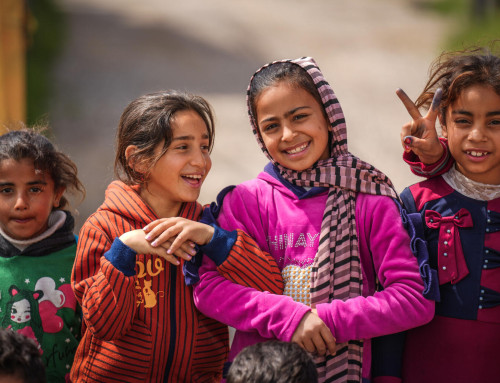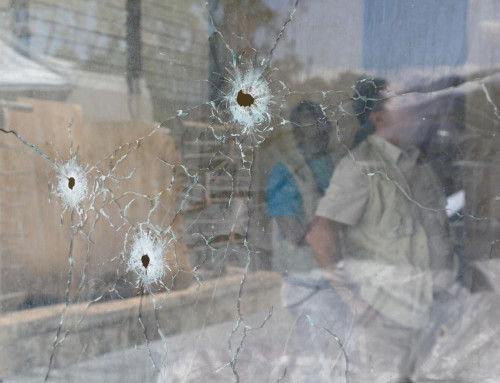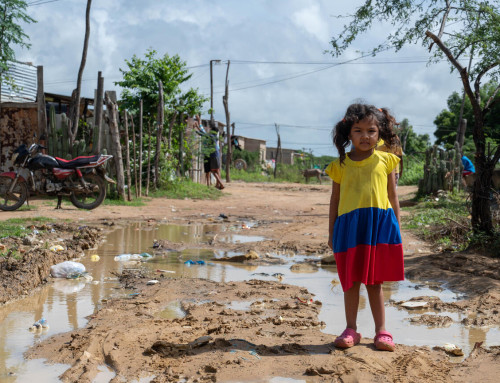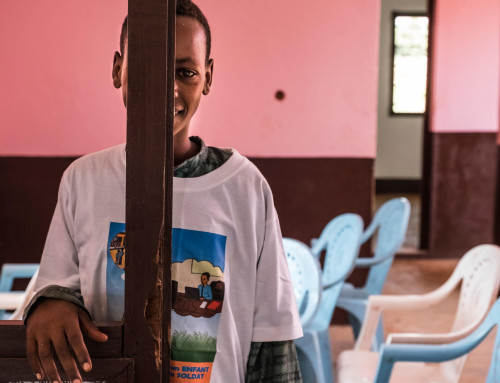Freetown – The visiting Special Representative of the Secretary-General for Children and Armed Conflict, Mr. Olara Otunnu, on Sunday, 23 February, met with representatives of the Children’s Forum Network, an advocacy group run by children, in Freetown for a discussion on the challenges facing young people in the post-conflict period.
Speaking to the group of over 60 children, the Special Representative reminded them that the dark period that engulfed Sierra Leone was now over. “There is some sunshine now: fighting has stopped and things have improved.” He recalled his visit to the country in 1999 when thousands of children had been abducted and given guns to fight, and noted that with the ongoing crises in Liberia and Côte d’Ivoire, there may be some Sierra Leonean child ex-combatants who are being attracted to go and fight there. “You must work to ensure it does not happen,” he said.
The Special Representative told the Network that he had been assured by the Special Court for Sierra Leone that children would not face charges, but stressed that crimes committed against children should figure prominently in its upcoming prosecutions. Mr. Otunnu warned, however, that although children would not be tried by the Court, this was not a license for children to do terrible things, and that with rights accorded to children come responsibilities.
Earlier, the President of the Network, Chernor Bah, briefed Mr. Otunnu on some of the challenges facing children in Sierra Leone. Bah narrated how children were abducted, killed, raped and used to kill during the war, which he referred to as “a period of darkness.”
The impact of the conflict continued to be felt by children, noted Bah, with a high rate of child prostitution, a growing number of street children and the HIV/AIDS pandemic. The United Nations should be a major instrument for effecting change in the lives of the children, urged the President of the Children’s Forum. Other children raised the issues of access to education, the need for special efforts on behalf of disabled children and the slow pace of justice in cases of rape of children. Mr. Otunnu said change would not happen overnight, but pledged to raise the children’s concerns at a later meeting with President Ahmad Tejan Kabbah.
Mr. Otunnu later visited the new premises of the Truth and Reconciliation Commission (TRC), where he inspected paintings by children depicting their expectations for the future of Sierra Leone.
The Deputy Chairperson of the Commission, Dr. Laura Marcus-Jones, told Mr. Otunnu that the Commission was working with the UN Children’s Fund (UNICEF) and other child protection agencies to get statements from children on their experiences in the conflict as part of the TRC’s mandate to create an impartial historical record of the war. She added that the Commission was working to put in place measures to fully protect children and prevent trauma from a recitation of their experiences.
The Special Representative underscored the importance of the TRC as a mechanism for healing and reconciliation after the war and in order to prevent a relapse into conflict. Without reconciliation, he said, there could be no durable peace. He advised the Commission to address the suffering of children as a major part of its task.
Mr. Otunnu welcomed the fact that the TRC was drawing from experiences of truth-seeking commissions in other parts of the world, particularly South Africa and Latin America and pledged the support of the UN system, especially the UN Mission in Sierra Leone (UNAMSIL), the UN High Commissioner for Human Rights and UNICEF.
For further information, please contact in New York:
Jean-Victor Nkolo
Communications Officer, OSRSG
Tel: +1-212-963-9879, Fax: +1-212-963-0807; nkolo@un.org
In Freetown:
Masimba Tafirenyika
Acting Spokesman, UNAMSIL
Tel: +232-22-273183/4, ext. 6817, tafirenyika@un.org;
22/02-01/03: March: Margaret Novicki, Chief of Outreach, OSRSG
c/o UNAMSIL Tel: +232-22-273183/4, ext. 6817 or 6583, novicki@un.org
OSRSG/PR03/01 10 January 2003





